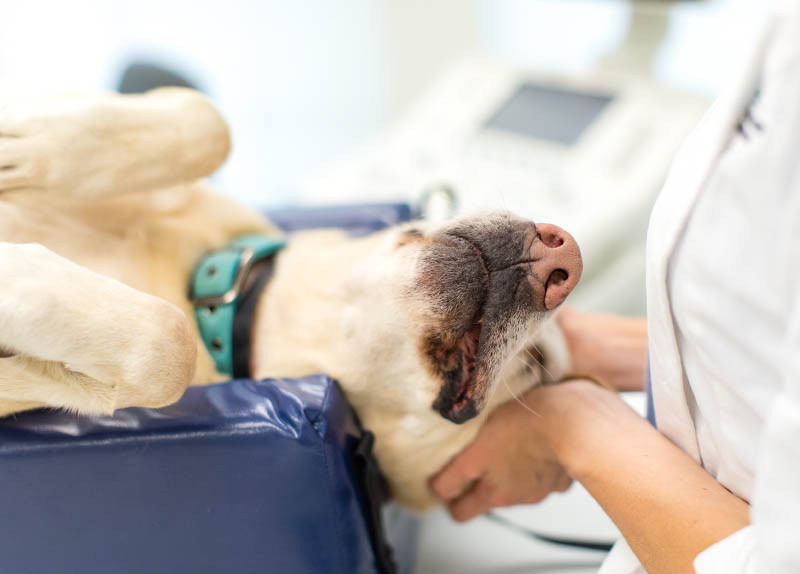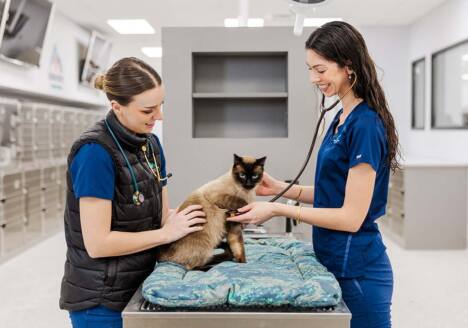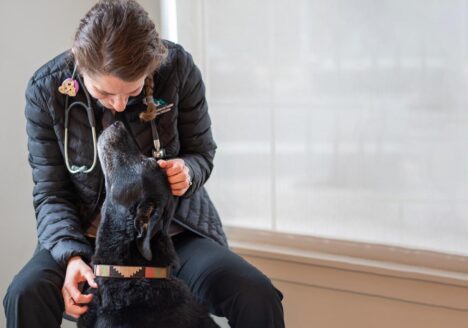National Poison Prevention Week arrives this March, and at the Veterinary Referral Center of Central Oregon (VRCCO), we understand the critical need to safeguard your pets from common household toxins. Our emergency department frequently treats animals exposed to these dangers, highlighting the importance of proactive prevention.

Hidden Hazards: Common Household Toxins to Secure
Your home, a haven for you, can harbor hidden dangers for your pets. Here’s a breakdown of common toxins and how to protect against them:
Human Medications:
Medication can be found in many places around your home – countertops, tables, bags, or purses. Remember to store all medication, even supplements and vitamins, out of reach, and be careful not to drop any pills where pets can access them.
While some human and pet medications overlap, it is never a good idea to share medications prescribed for humans with your pet. Over-the-counter drugs are just as dangerous if not more, like Tylenol (acetaminophen) which is highly toxic to animals.
Household Products:
Many owners are concerned about their pet’s exposure to common household products. While most cleaning products are considered safe when exposed to low amounts, we encourage you to limit exposure to disinfectants by taking the following precautions: keep pets out of the room while cleaning, ensure proper ventilation, and only allow them back in once surfaces are dry.
It is also important to store cleaning products out of reach. Be especially cautious with drain cleaners, dishwashing chemicals, oven cleaners, antifreeze, and batteries.
Insecticides and Rodenticides:
The smells that attract pests may also tempt your pets. These items contain dangerous chemicals that could significantly harm your pets, so consider looking into pet-safe alternatives and be sure to store these items securely to prevent accidental ingestion.
Recreational Drugs:
Marijuana and other drugs can lead to emergencies if ingested by pets. Keep these items out of reach, and always be honest with your veterinarian about what your pet may have consumed to ensure they receive the best care.
Food, Alcohol and Chocolate:
Many human foods, including alcohol and chocolate, contain ingredients that are toxic for pets. It is tempting to want to share your favorite treats, but please remember to double-check if they are safe for animals first.
Plants and Fungi:
Certain plants can pose a big threat to our pets. Before you purchase a new plant for your home, please refer to the ASPA’s list of toxic and non-toxic plants on their website.
Recognizing the Warning Signs: Toxin Exposure Symptoms
Immediate action is vital if you suspect your pet has encountered a toxin. Watch for these symptoms:
- Vomiting and diarrhea
- Excessive drooling
- Lack of coordination or ataxia
- Loss of appetite
- Weakness or lethargy
- Increased thirst or urination
- Pale or yellow gums
- Seizures, tremors, or hyperactivity
Emergency Response: What to Do
If your pet experiences the symptoms above, please contact the Veterinary Referral Center of Central Oregon for guidance. If you suspect your pet has encountered a toxin, please call the ASPCA Poison Control Hotline at (888) 426-4435 to get an over-the-phone consultation on what your pet has ingested and what the next steps should look like. Veterinary teams will also utilize this report while treating your pet.


